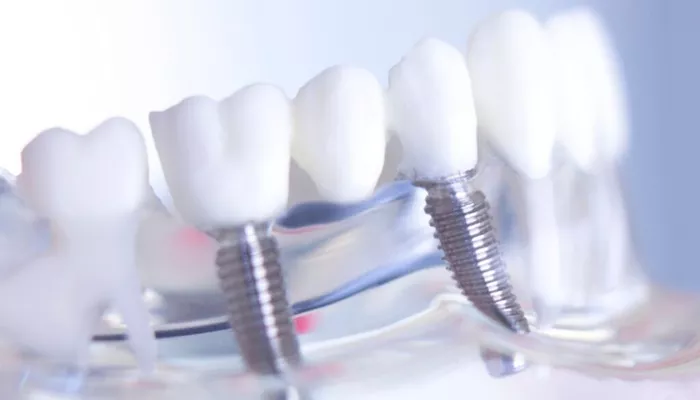WATAN — June 17, 2025 — Researchers at Tufts University School of Dental Medicine have developed a revolutionary dental implant designed to replicate the natural sensation of real teeth, a major step forward in both dental and regenerative medicine.
The new “smart” implant, detailed in a study published Friday in Scientific Reports, uses advanced bioengineering to simulate nerve feedback—something traditional implants cannot do. Conventional dental implants restore basic function and appearance, but they lack nerve connections, leaving patients without the natural feel of a real tooth.
A Bioengineered Approach to Restoring Nerve Feedback
To overcome this, the Tufts team created an implant with a biodegradable coating that contains stem cells and a protein that promotes the formation of nerve tissue. As the layer dissolves during healing, it releases these materials, stimulating the growth of nerve fibers around the implant site.
“This innovation helps the implant communicate with the body’s nervous system,” the research team explained. “It’s a critical advancement toward making implants that don’t just look like natural teeth—but feel like them too.”
The implant is also coated with soft, sponge-like particles that allow it to gently compress during insertion. Once in place, it expands to fit the shape of the lost tooth, minimizing damage to surrounding tissues and nerves.
Promising Results from Early Animal Testing
The implants were tested on mice and remained stable for six weeks with no signs of inflammation or immune rejection. Imaging studies revealed a soft-tissue layer between the implant and the jawbone, rather than the typical direct bone integration. This finding is significant because it suggests the potential for nerve regeneration and sensory feedback—hallmarks of a real tooth.
The next step for researchers is preclinical testing in larger animals to confirm safety, functionality, and whether the regenerated nerves can successfully send signals to the brain. If successful, the technology could eventually expand into other areas, including hip replacements and bone repair surgeries.
A Step Toward Smarter, More Human-Centered Implants
“This work represents a major move toward smart, neuro-integrative implants,” the research team stated. “It reflects a global shift in medicine toward biologically intelligent and regenerative technologies.”
If further studies prove successful, these implants could transform how dentistry—and other surgical fields—approach prosthetics. The possibility of restoring not just function but natural sensation opens a new chapter in personalized medical care.

